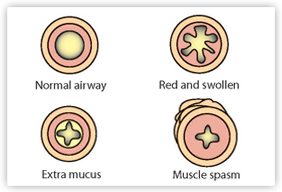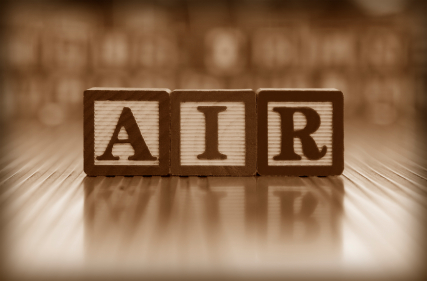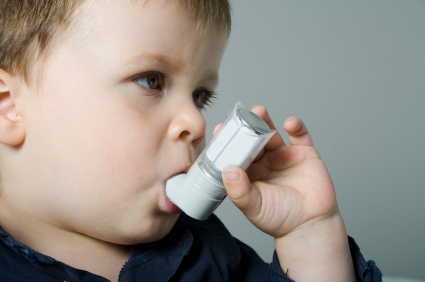Today is World Asthma Day. Having a child with Asthma can be extremely traumatic for any parent – it can be a deadly disease.
Today’s post is from our sister Zara who has lived with Asthma her whole life. Alisha & I remember many frantic late night trips to the hospital still in our pyjamas and so worried for our baby sister.
Zara has offered to share her experience with you, which we hope sheds some light on the condition, as well as offer some helpful information for you to be able to recognize the symptoms of Asthma in you own child – because a massive 1 in 9 children have Asthma.
It’s hard for me to describe what it’s like to have asthma. I was born with it, so I don’t know any different. To me having trouble breathing, wheezing or feeling strong tightness in my chest is normal. I have to remind myself sometimes that not everyone experiences these same feelings!
I was diagnosed with chronic Asthma at 6 weeks old. My Mum noticed I had a slight but persistent wheeze that worried her. She took me to the doctor and after numerous tests they were able to diagnose it as a symptom of Asthma.

Image shows a normal airway – and progression through to the airway of someone having an Asthma attack with the narrowing of the airway due to muscle spasm. Image via The Asthma Foundation
Asthma is, at its simplest, a narrowing of the airways. Asthma suffers have sensitive airways and when exposed to certain triggers the airways contract. Triggers for me include dust mite, cigarette smoke, pollen, cold weather, animals, cleaning products, mould and exercise.
This is where I can use asthma to my advantage. Exercise is a trigger, which means avoiding the gym is good for my health! (I hope there aren’t any GP’s reading this!!!)…. Cleaning chemicals are also pretty bad for me: “Sorry but there is no way I can clean the oven. I might have an asthma attack!”
These are probably the only 2 benefits though!
When exposed to the trigger the airways close making it hard to get oxygen through to the lungs because of the limited space, thus sufferers find it difficult to breathe. Imagine it like someone has placed a plug in your airways and it’s only allowing the tiniest bit of air through.
According to Asthma Australia, 400 Australians die each year from asthma. I can’t get over this number. It’s very scary and a good reminder of how serious the disease can be.
Throughout my childhood I was in and out of hospital regularly. Attacks were common and severe – some were so severe it must have been incredibly frightening for my parents. They have stories of me struggling to breathe and almost turning blue in my Mum’s arms in the back seat of the car as they drove me to the hospital. Luckily for me I can’t remember much about these times – I’m guessing I was either too young or it was very traumatic and my memory has blocked it out.
I was also constantly at the pediatrician’s office for ongoing management. My pediatrician would monitor my asthma, alter medication dosage, as well as monitor my height and weight (some asthma medications contain steroids and can affect development). My parents also encouraged trying different approaches to management such as the Buteyko method, a breathing training program which claims to improve symptoms. However, even though this program worked for me (and I still fall back on some of the breathing exercises now and then), it was too hard for me to consistently maintain.
As a teenager, my asthma was improving but it looked like I wasn’t going to ‘grow out of it’ as some children can, so my parents stripped my room bare and threw away the carpet, curtains and bed and replaced it with ‘asthma friendly’ furnishings and products (making all my sisters very jealous!). This helped a lot, and is an indication of how removing ‘triggers’ can be crucial in managing your Asthma.
Thankfully as an adult my life isn’t restricted by my Asthma. However, I am constantly paranoid and anxious about having an asthma attack and I can’t leave the house without triple checking I have my reliever medication with me. Going on a holiday is worse; I make sure I have at least one Ventolin in every pocket of every bag (especially if going to colder climates).
The theme for World Asthma Day 2012 is ‘You can control your asthma’. This is one of the positives about suffering from Asthma. It can be controlled and you can live a normal life when you and your GP find the right management strategy for you.
For parents, the best way to look for signs of Asthma in your child is like my Mum did – take notice of anything unusual, and get it checked out with you doctor. Key signs of Asthma in children can include the following:
- wheezing or breathlessness (with or without illness)
- waking up coughing or wheezing
- having trouble keeping up with activities
Symptoms are known to be worse late at night or early in the morning. There is also some evidence that there is a relationship with skin rashes, allergies, and hay fever.
Having asthma can be a pain, and it is at times very scary. However, I would prefer to have a disease I can manage well than one that I have no control over – so I believe I am very lucky.
For more information on Asthma, visit Asthma Australia, the Asthma Foundation and the National Asthma Council. Asthma Australia recently announced funding has been received to roll out a national Asthma Child and Adolescent Program. The program will provide free asthma first aid training across Australia for school and preschool staff; information for families; and self management support for adolescents with asthma.
Thanks for sharing Zara ~ we love you, wheeze and all! ~ anna
If you have any questions for Zara or would like to share your own experience, please leave a comment below!



Zara I am glad you are still alive to tell the story, as your Mother many times I was so scarred watching you and feeling helpless, you would look so sick. I have learnt from my experiences with you that you don’t take any chances. I spent nights with you on a bed beside me and I would hold your hand so that if you had an attack I would know and not sleep through it. Sometimes we would have you checked out by a GP in the late afternoon and told to take you home you would be alright only to have a rush to the Hospital in a panic with an Asthma attack in the middle of the night. I learnt that Mother’s intuition most of the time is right. I would recommend having a Pediatrician to anyone with a child who is a Chronic Asthmatic – Zara stayed out of Hospital once we got the right ongoing management. He also reassured us to ring an Ambulance if she had an attack. It had never entered my head that we should do this, it was that serious. It was so frightening driving to Hospital in the middle of the night and now I realise how I had put Zara’s life at risk. As parents there is a lot we learn by experience, we were so fortunate to get the right care because we could now be living with regrets. Love you my baby Zara.